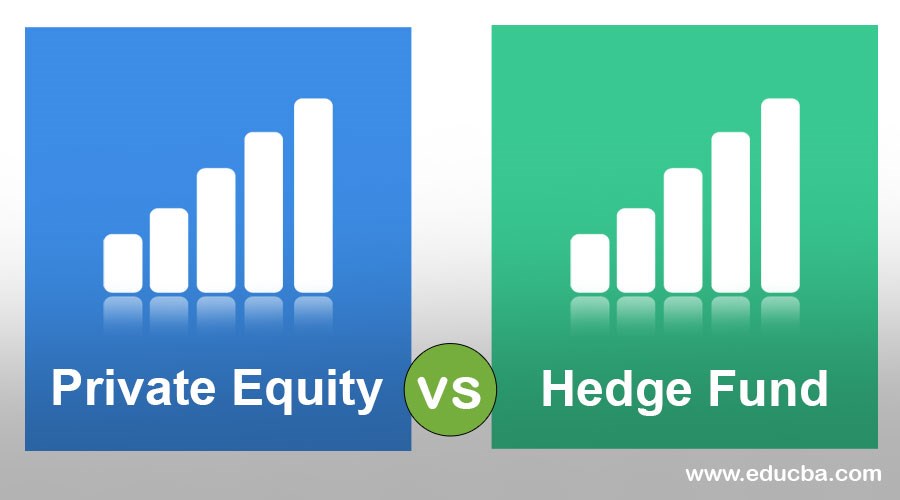UFG Asset Management
Персоны (2) работают сейчас — 1 работали ранее — 1
| ФИО | Город | Должность |
|---|---|---|
| Голубева Анна | Москва | Финансовый директор (CFO) |
* Персоны, ранее работавшие в компании
| ФИО | Должность | Комментарий |
|---|---|---|
| Мишустин Михаил Владимирович | Управляющий партнёр | — |
Цифровой паспорт (3 проекта)
| Проект | Интегратор | Продукт | Технология | Год |
|---|---|---|---|---|
 |
Navicon (Навикон) | Microsoft Dynamics CRM | CRM | 2011 |
 |
Navicon (Навикон) | NaviCon FSI | Учетные системы | 2010 |
 |
Navicon (Навикон) | NaviCon Holding | ERP | 2009 |
Активы
UFG Asset Management — это крупная независимая инвестиционная компания с активами на начало 2020 года более $2,3 млрд.
UFG зарабатывает тем, что формирует фонды с различными инвестиционными стратегиями:
- фонды прямых инвестиций в российские компании и компании в других странах СНГ,
- венчурные фонды,
- инфраструктурные инвестиции,
- фондовый рынок акций и облигаций,
- агроинвестиции,
- девелоперские проекты,
- складскую логистику и
- недвижимость в России.
В эти фонды квалифицированные международные и российские институциональные и частные инвесторы вносят капитал и получают доход от инвестирования.
- UFG Asset Management
- UFG Private Equity
UFG получает комиссию за управление и комиссию за успех, если фонды превышают ежегодную доходность 5–8% в долларах. Если фонды не заработают доходность для инвесторов, партнеры UFG ничего не зарабатывают.
Компания входит в проекты на 5–8–10 лет и вместе с собственниками стремится вырастить объем и стоимость бизнеса в несколько раз. Потом надо еще найти стратегического покупателя на бизнес компании или разместить ее акции на бирже.
Доходность инвестиций
Доходность инвесторов зависит от стратегии и сроков инвестирования. Фонды прямых инвестиций и венчурные фонды рассчитаны на инвестиционные циклы сроком десять лет. Ликвидные фонды открыты на вход и выход с регулярными интервалами.
Что касается доходности, инвестиции в акции крупнейших российских «голубых фишек» UFG Russia Select за семь лет, с 2013 по 2019 год, принесли инвесторам +11,2% чистой ежегодной доходности в долларах. Для сравнения, доходность индекса РТС с учетом дивидендов за тот же период составила +6,9%.
Другой наш фонд, UFG Special Situations, который инвестирует в российские акции и облигации, а также покупает доли и долг частных компаний, показал с 2013 года +7,3% ежегодного прироста.
Доходность фондов прямых инвестиций UFG Private Equity в быстрорастущие и инновационные частные компании составляет 15,6% годовых. Аналогичную доходность инвесторы могут ожидать от технологических и венчурных фондов.
Фонды недвижимости (куда относились и земельные угодья, т.е. сельскохозяйственные проекты) UFG Real Estate принесли инвесторами 8–12% чистой годовой доходности.
Конечно, бывают и неудачные инвестиции, при этом все доходности, которые приведены в примерах выше, всегда учитывают результаты всех проектов по совокупности.
История
2020: Управляющий партнёр UFG Полина Герасименко рассказала о бизнесе компании
В феврале 2020 г управляющий партнер UFG Полина Герасименко в письме в РБК рассказала об особенностях бизнеса компании [1] :
![]()
![]()
![]()
![]()
![]()
![]()
![]()
![]()
2011: Продажа «ОФГ Инвест» в Deutsche Bank
Deutsche Bank компания продала российскую управляющую компанию ЗАО «ОФГ ИНВЕСТ» в два этапа, сначала 40% в 2008 году. После продажи УК «ОФГ ИНВЕСТ» стала работать под брендом Deutsche UFG Capital Management (но еще три года оставалась под управлением UFG), а в 2011 году, после продажи остальных 60%, полностью перешла под управление Deutsche Bank. Спустя пять лет, в 2013 году, ее у Deutsche Bank выкупила группа компаний «Атон» и перевела под свой бренд.
Михаил Мишустин курирует проект в Брянске «UFG Агро Партнеры»
Одним из проектов, которые вел Михаил Мишустин, был сельскохозяйственный проект в Брянске «UFG Агро Партнеры», в который компания начала инвестировать в мае 2008 года. Там была заброшенная, поросшая кустарником земля. А мы за несколько лет на 38 тыс. га организовали высокотехнологическое агропроизводство пшеницы, ячменя, сои. Компания была одним из крупнейших налогоплательщиков в регионе и одним из ключевых предприятий, создающим рабочие места. В проект было вложено более $30 млн инвестиций, построена зерносушилка, закуплена техника, внедрены передовые западные агротехнологии, благодаря которым удалось более чем в три раза увеличить урожайность с гектара по сравнению с урожайностью сельхозземель в регионе. Были использованы передовые почвосберегающие технологии распашки земли и ротации урожая. Впоследствии, в 2014 году, бизнес был продан одному из крупнейших российских агрохолдингов в России с увеличением стоимости проекта в рублевом эквиваленте почти в два раза. Проект успешно реализовал свой потенциал, заложенный партнерами еще на стадии его формирования в 2009 году.
Будущий премьер-министр России Михаил Мишустин становится одним из партнеров UFG
Контролирующими партнерами UFG с момента основания были [бывший министр финансов и заместитель председателя правительства] Борис Федоров, Чарльз Райан и Флориан Феннер. В 2008 году их стало четверо, к ним присоединился Михаил Владимирович Мишустин. Компания юридически структурирована по каждому направлению инвестирования отдельно. Каждый новый фонд формируется с разными инвесторами и разными объектами инвестирования и существует независимо друг от друга. Внутри каждого направления, помимо контролирующих партнеров, миноритарными долями владеют ключевые менеджеры данного направления.
В феврале 2020 года Управляющий партнер UFG Полина Герасименко в письме в редакцию ответила на вопросы РБК о том, за что отвечал, сколько зарабатывал и почему ушел из компании Михаил Мишустин, занявший в январе 2020 года пост премьер-министра России [1] .
Private Equity vs Hedge Fund
By  Madhuri Thakur
Madhuri Thakur

Difference Between Private Equity vs Hedge Fund
Private Equity vs Hedge Fund in this, Private equity funds can be defined as the investment mechanism of private equity companies in a privately held company to gain ownership in the equity capital of a company or earn a higher rate of returns. Private equity firms might even choose to invest in a public limited company solely for the purpose of delisting the same from the stock exchange or, in other words vesting the public listed company with the status of a private limited company.
The investment capital in private equity is taken into use to enhance the working capital (WC) of an entity, strengthen the balance sheet, or introduce and install newer technology in an entity solely to leverage the output and so on. Private equity requires a larger amount of funds, and it is why the majority of the investors who participate in the same are institutional and accredited investors.
Download Corporate Valuation, Investment Banking, Accounting, CFA Calculator & others
On the other hand, hedge funds can be defined as an alternative investment mechanism where funds from various sources are assembled through various strategies to maximize the earnings of the investors. Hedge funds are also regarded as investment partnerships.
Head to Head Comparison Between Private Equity vs Hedge Fund (Infographics)
Below are the Top 12 comparisons between Private Equity vs Hedge Fund :

Key Differences Between Private Equity vs Hedge Fund
The key differences between private equity and hedge funds are provided and enumerated as follows:
- Hedge funds are closed-ended investment funds, while private equity funds are closed-ended investment funds.
- Hedge funds are riskier when compared with private equity funds.
- Private equity funds are invested with a motive to earn rewards within a longer period of time. Hedge funds are invested with a motive to earn rewards returns within a shorter span of time.
- The returns earned in private equity funds are free from the implications of tax, whereas the returns earned in hedge funds are subjected to be tax implications.
- Private equity funds will require the investors to invest the capital whenever required or asked for, whereas, in the case of hedge funds, investors will need to make a single-time investment only.
- Private equity funds have a higher level of control over asset management, whereas hedge funds have a lower level of control over asset management.
- The investors in a private equity fund are actively involved as compared to the investors in a hedge fund that enjoy passive status.
- In private equity, the life of a fund is defined contractually, i.e. pre-stated in the contract, whereas, in a hedge fund, the life of a fund has minimal or no limitation at all.
Private Equity vs Hedge Fund Comparison Table
Given are the Major differences between Private Equity vs Hedge Fund:

Private Equity
Hedge Funds
Conclusion
Private equity funds are the funds taken into use to acquire the stakes of public limited companies and convert them into private limited companies or make an investment in private companies to gain control over their asset management. The purpose of a private equity fund can be the acquisition of an organization, expansion, strengthening the balance sheet of an organization, etc. Hedge funds are privately-owned companies that choose to raise funds from their investors and then reinvest them into risk-bearing portfolios.
Recommended Articles
This is a guide to the Private Equity vs Hedge Fund. Here we discuss the difference between Private Equity vs Hedge Fund, along with key differences, infographics, & a comparison table. You can also go through our other related articles to learn more–
Private Equity vs Hedge Fund

Private equity can be defined as the funds that the investors take into use for the acquisition of public companies or to make an investment in private companies, On the other hand, hedge funds can be defined as privately owned entities that raise funds from the investors and then invest them back into financial instruments bearing complicated portfolios.
A private equity fund is usually taken into use in cases like the acquisition of companies, expansion of an entity, or to strengthen the balance sheet of an entity. In private equity, investors who have shown an interest in funding businesses are offered a prospectus for fundraising. Hedge funds are formed as limited liability Limited Liability Limited liability refers to that legal structure where the owners’ or investors’ personal assets are not at stake. Their accountability for business loss or debt doesn’t exceed their capital investment in the company. It is applicable in partnership firms and limited liability companies. read more corporations for safeguarding the investors and the managers from the lenders if at all, the funds are bankrupt.

You are free to use this image on your website, templates etc, Please provide us with an attribution link How to Provide Attribution? Article Link to be Hyperlinked
For eg:
Source: Private Equity vs Hedge Fund (wallstreetmojo.com)
What is Private Equity?
What is Hedge Fund?
Hedge Fund is just another name for Investment Partnership Investment Partnership An investment Partnership is a form of business partnership wherein at least 90% of its assets are the investments in intangible assets like bonds, stocks, or options & at least 90% of the income is acquired from that asset type. read more . The meaning of the word ‘hedge’ is protecting oneself from the financial losses; thus, Hedge Funds are designed to do so. Although a risk factor is always involved, it depends on the return. The more the risk, the higher is the return. Hedge Funds are alternative investments done by pooling funds involving several strategies to earn high returns for the investor. Hedge funds are not regulated by the securities and exchange commission and can be used for a range of securities compared to mutual funds. Hedge Funds work on the Long-Short strategies, which means investing in long positions Long Positions Long position denotes buying of a stock, currency or commodity in the hope that the future price will get higher from the present price. The security can be bought in the cash market or in the derivative market. The course of action suggests that the investor or the trader is expecting an upward movement of the stock from is prevailing levels. read more , i.e., buying stocks as well as short positions Short Positions A short position is a practice where the investors sell stocks that they don’t own at the time of selling; the investors do so by borrowing the shares from some other investors to promise that the former will return the stocks to the latter on a later date. read more , which means selling stocks with the help of borrowed money and then buying them again when the price is low.
Private Equity vs. Hedge Funds Infographics

You are free to use this image on your website, templates etc, Please provide us with an attribution link How to Provide Attribution? Article Link to be Hyperlinked
For eg:
Source: Private Equity vs Hedge Fund (wallstreetmojo.com)
Key Differences Between Private Equity and Hedge Funds
- Private equity funds are the investment funds that are typically owned by limited partnerships to buy and restructure companies that are not traded publicly on the stock exchangeStock ExchangeStock exchange refers to a market that facilitates the buying and selling of listed securities such as public company stocks, exchange-traded funds, debt instruments, options, etc., as per the standard regulations and guidelines—for instance, NYSE and NASDAQ.read more . In contrast, hedge funds are privately held, and these pool investors’ funds and then reinvest the same into financial instruments that have a complicated portfolio.
- Private equity funds invest in companies that can provide higher profits over a more extended period. In contrast, hedge funds are used to invest in assets that yield good ROI or return on investment over a shorter period.
- Investors in private equity funds have the liberty to invest funds as and when required, whereas, in hedge funds, the investors will need to make investments all in a single go.
- Private equity funds are closed-ended investment funds, whereas hedge funds are open-ended investment funds.
- Private equity funds do not have any sort of restriction on transferability over a specified time frame, whereas hedge funds have restrictions on transferability.
- Private equity funds are less risky in comparison to hedge funds.
- The investors in private equity funds act as active participants, whereas the investors in hedge funds are vested with the passive status.
- Funds life is contractually defined in private equity funds, whereas there is zero limitation on funds’ life in the case of hedge funds.
- Investors in Private equity funds have a higher level of control over operations and asset management, whereas hedge funds have a lower level of control over assets.
Private Equity vs. Hedge Fund – Structural Difference
Private equity comes under the category of closed-end investment funds, which are generally suitable for the investments which cannot be marked to the market Marked To The Market Marking to market (MTM) is the concept of recording the accounts, i.e., the assets and liabilities at their fair value or at the current market price, which varies with time rather than historical cost. It helps to represent the company’s actual financial condition. read more and have restrictions on transferability for a duration of time while Hedge Fund exists in the category of traditional open-end investment funds, which are generally suitable for the investment vehicles which have an established trading market. There are no restrictions regarding the transferability; that is, assets are available to be marked to market readily.
When speaking of the term, hedge funds do not have any specific term, whereas Private equity has a term of 10 to 12 years, which can be extended further by the Manager/GP entity with the consent of all the investors.
When do you have to release money?
In the case of private equity, you don’t have to invest money immediately from your account; instead, you have to commit the capital to be paid in the near future for any deal done by the portfolio manager Portfolio Manager A portfolio manager is a financial market expert who strategically designs investment portfolios. read more in the private market.
There is no fixed time duration as to when your money can be called, whereas, in the case of Hedge funds, you have to release the committed amount immediately from your savings. This amount is invested in the marketable securities Marketable Securities Marketable securities are liquid assets that can be converted into cash quickly and are classified as current assets on a company’s balance sheet. Commercial Paper, Treasury notes, and other money market instruments are included in it. read more which are traded in real-time.
Performance Measurement and Realization
The performance of Private equity is measured in terms of Internal Rate of Return (IRR), and usually, a minimum hurdle rate Hurdle Rate The hurdle rate in capital budgeting is the minimum acceptable rate of return (MARR) on any project or investment required by the manager or investor. It is also known as the company’s required rate of return or target rate. read more is applicable to Private Equity. While in Hedge funds, returns are immediate and sometimes for gaining more incentive fees, performance is measured according to a benchmark.
Performance realization for private equity is generally after the hurdle rate has been achieved, and mostly negative performance is reported by private equity during the early years. The performance of Hedge funds are realized continuously while the investment of assets.
Allocations and Distributions
Some significant differences exist between Private Equity and hedge funds in terms of the allocation and distribution of the fund between investors and fund managers. In private equity, distribution of portfolio liquidation Liquidation Liquidation is the process of winding up a business or a segment of the business by selling off its assets. The amount realized by this is used to pay off the creditors and all other liabilities of the business in a specific order. read more carries on until the investor has received the amount he invested and sometimes “preferred returns” are also received, which are calculated as some percentage of investor’s contributed amount which is further distributed among investors and fund manager, generally, in the ratio of 80-20. A hedge fund investor never recovers the amount invested until the fund is terminated due to some reasons, or he deliberately withdraws from the funds.
Fee Comparison
Fees of Private Equity are evaluated on several assumptions such as investment period, fund life, average holding period, carry percentage, and maximum percentage funded. Private equity fees are two-tiered. Tier 1 is of the annual fee of 1.5% on committed investment during the first five years and then 1.0 % after five years.
The most common fee structure for the Hedge fund Hedge Fund A hedge fund is an aggressively invested portfolio made through pooling of various investors and institutional investor’s fund. It supports various assets providing high returns in exchange for higher risk through multiple risk management and hedging techniques. read more is a 1.5% fee for management and a 20% fee based on performance. Hedge fund usually earns performance fees on the first dollar of profit. In contrast, performance fees in Private equity are not earned until the target of preferred return is achieved by the investor. Preferred return in Private Equity is the reason behind the lower fees.
Both exist to make money out of the investments, and a high-risk factor is involved in both the funding options. It is crucial to assess the differences between the two and choose accordingly.
Comparative Table
| Basis of comparison | Private Equity Funds | Hedge Funds |
| Definition | Private equity funds are the funds that are used by the investors for making an investment in private entities or acquisition of entities that are publically enlisted on the stock exchange. | Hedge funds are all about the private limited companies raising funds from the investors and then reinvesting them back into financial instruments Financial Instruments Financial instruments are certain contracts or documents that act as financial assets such as debentures and bonds, receivables, cash deposits, bank balances, swaps, cap, futures, shares, bills of exchange, forwards, FRA or forward rate agreement, etc. to one organization and as a liability to another organization and are solely taken into use for trading purposes. read more that have a risky portfolio. |
| Time frame with respect to investment | Private equity funds is all about making an investment in companies that are capable enough of offering substantial returns over a longer period of time. In other words, private equity funds invest in portfolios that can yield returns over a longer period. | Hedge funds focus on making an investment in companies that are capable of offering substantial profits on ROI (return on investment) in the nearing time. In other words, hedge funds seek to make an investment in portfolios that can yield return within a shorter period of time. |
| Restrictions of transferability | Private equity funds are closed-ended Funds Are Closed-ended A closed-end fund refers to a professionally managed fund whereby an investment company issues the initial public offering to raise capital. Later, these stocks are exchanged in the open market among the shareholders like other shares. Such investments provide better returns than the open-end funds. read more investment funds that have restrictions with respect to transferability. However, these restrictions are applicable only for a particular period of time. | Hedge funds are open-ended investment funds that do not really have any sort of restriction on transferability. |
| Capital investment | The investors opting for private equity funds will need to invest the capital as and whenever called upon. | The investors opting for hedge funds will need to make a one-time investment only. |
| Level of risks | Private equity funds are less risky as compared to hedge funds. | Hedge funds carry higher levels of risks since these emphasize more on deriving huge returns and that too within a shorter period of time. |
| Taxes | The gains earned in private equity funds are not subjected to tax rates. | The gains earned in hedge funds are subjected to taxes. |
| Level of control over assets | Private equity funds have a greater level of control and influence over asset management Asset Management Asset management is a method of managing funds and investing in both traditional and specialized products in order to generate returns consistent with the investor’s risk tolerance. read more and operations. The investors of a private equity fund can actively participate in changing business strategies, implementation of governance, and initiating operational improvements. | Hedge funds have a lesser level of control over assets, and these also do not have any voting powers. It is because of the fact that hedge funds are usually minority investors that have little or zero control over the investments. |
| Term | In private equity, funds’ life is contractually defined. | In hedge funds, there is zero limitation on funds’ life. |
| Stakes held | Small stakes in companies that are publically listed on the stock exchange; | Significant stakes in companies that are closely held; |
| Management fees | 1 to 2 percent of assets that are actively managed; | 1 to 2 percent of the assets that are under management; |
| Investment horizon | These are usually long term. | Hedge funds are generally short term. |
| Level of participation | The investors are active participants in a private equity fund. | The investors are vested with the passive status in a hedge fund. |
Conclusion
Private equity funds, as the name implies, is all about making an investment in private companies through direct investments or funds, whereas, in hedge funds, investors can choose to invest and trade in different types of financial securities and markets through leveraging or short selling. The level of risks in hedge funds is way higher as compared to private equity funds. The gains earned from the private equity funds are exempted from tax, whereas the gains earned from the hedge funds are adjusted for taxes.
Recommended Articles
This article has been a guide to the Private Equity vs. Hedge Fund. Here we discuss the key differences between private equity and hedge fund to help you invest your money. You can learn more from the following articles –
Comments
 Priyank says
Priyank says
Will written and easy to understand. Thanks for writing this up.
 Dheeraj Vaidya says
Dheeraj Vaidya says
Thanks for your kind words!
 Sudhir says
Sudhir says
Located your article on CFA VS. CAIA.
Pls ignore my earlier request.
Thanks and Regards,
 Sudhir says
Sudhir says
Request your inputs on CFA vs. CAIA.
 neeraj says
neeraj says
Awesome in depth article
 Dheeraj Vaidya says
Dheeraj Vaidya says
Источник https://www.tadviser.ru/index.php/%D0%9A%D0%BE%D0%BC%D0%BF%D0%B0%D0%BD%D0%B8%D1%8F:UFG_Asset_Management
Источник https://www.educba.com/private-equity-vs-hedge-fund/
Источник https://www.wallstreetmojo.com/private-equity-vs-hedge-fund/
Источник
Инвестиционный фонд
